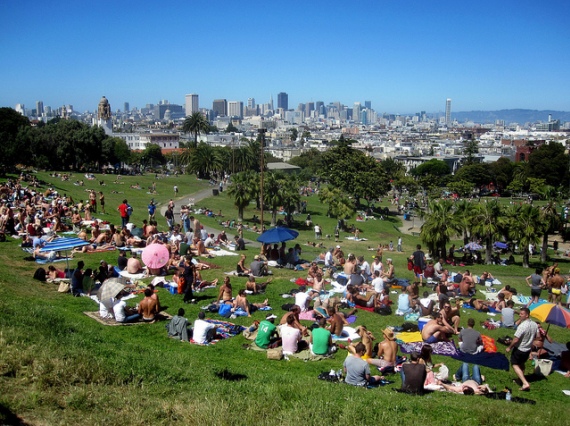
1. San Francisco
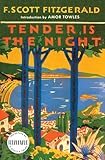 Last October, under-employed and back in San Francisco after three years’ absence, I was early for a weekday appointment in the Mission District. I decided to spend an hour in Dolores Park, open up my copy of Tender is the Night, and try to have thoughts about it (read these thoughts–and more–in the most recent installment of the Modern Library Revue!). It’s a truism in San Francisco that summer starts in September and peaks in October, when Dolores Park traditionally writhes with tattooed flesh, and there is a pervading smell of pot and damp feet removed sockless from kicky little shoes, and the throng of people outside the caddy-corner Bi-Rite Creamery causes an encumbrance to the thoroughfare.
Last October, under-employed and back in San Francisco after three years’ absence, I was early for a weekday appointment in the Mission District. I decided to spend an hour in Dolores Park, open up my copy of Tender is the Night, and try to have thoughts about it (read these thoughts–and more–in the most recent installment of the Modern Library Revue!). It’s a truism in San Francisco that summer starts in September and peaks in October, when Dolores Park traditionally writhes with tattooed flesh, and there is a pervading smell of pot and damp feet removed sockless from kicky little shoes, and the throng of people outside the caddy-corner Bi-Rite Creamery causes an encumbrance to the thoroughfare.
On this balmy Wednesday, I found a spot on the grass and opened my book to the white sands of Gausse’s beach, the romping ground of Fitzgerald’s idle rich. I had been having trouble with Tender is the Night. How should I think about Fitzgerald’s leisure class and their intrigues? I wasn’t really connecting with them, in the parlance of our times. I was distracted by Dolores Park’s famous vista: the palm trees, the dome of Second Church of Christ, Scientist, the churriqueresque facade of Mission High. The park was oddly crowded. I watched the male half of an attractive couple pull a bottle of wine from a basket and look out at the serene Bay while he poured. Their Boston Terrier lolled; an elegant blonde reclined on a blanket. I removed my aged cardigan and broiled in the October sun. What a classy, languid Wednesday everyone seemed to be having!
Then, there among the lotus eaters, I had a moment of clarity. I was on Gausse’s beach. It was high summer on The Riviera.
2. San Diego
The next month, November, I went with my husband to San Diego, where I fretted through the presidential election while he attended a conference. The conference was given by Tableau, a data visualization software used to sculpt and prune immense amounts of information into cheerful graphs and dashboards — a product that promises to let its user “tell stories with data on the web” and elsewhere. The conference was three days, which were for me days of aforementioned fretting and trips to a place called Taco Express (which, although it’s not pertinent to my story, is one of the best places, of any kind, that I have been).
On the last evening, I attended the Tableau customer party. My experience with conferences is limited to the California Antiquarian Book Fair, at which there is a be-curtained vendor area with candies and apples and plastic cups frosty from the water cooler. At Tableau, Malcolm Gladwell delivered the keynote speech. The customer party was held on the field of Petco Park, which is where the San Diego Padres play Major League Baseball. There were buffets and bars and a lighting scheme, and elevated platforms strewn about the turf. In keeping with the general “stadium” vibe, caterers ranged around with bucket-sized lemonades. Sharon Jones and the Dap Kings had been engaged; the dance floor was mere feet from the spangled edges of her dress. If one wanted to visualize them from some broader vantage, there was the Jumbotron. On the heels of my wedding, I was inclined to see things in terms of head counts and catering costs; long before the fireworks display, the mind had boggled.
While an astounding number and variety of organizations are anxious to plumb big data’s secrets, my husband and his colleague seemed like the lone civil servants in a phalanx of people from trendier sectors. I had watched Obama accept the presidency in the hotel lobby with two women from Facebook, who were using the software not to track users, but as an internal tool, I believe having to do with HR. Not only, it would seem, is Facebook visualizing my clicks on your wedding album; they are turning the glass inward. Our data, ourselves.
At the party, I clasped my lemonade bucket in two hands and gazed. In front of Sharon Jones were slender men and women in high quality outerwear that kept the chill away and yet revealed sculpted pecs; they danced and Instagrammed and exuded, to an outsider with nothing but the crudest anecdotal data from which to draw, a certain marathoner, waxed-ass aspect that seems to characterize the beautiful people of the tech sector. Are they the marketers? The money? Outside the dance floor stood less kempt bunches, many of them visually corresponding to the old-fashioned techie stereotypes: lurky men, not a lot of women.
I have since learned that baseball diamonds and Sharon Jones are small potatoes, as tech conferences go. At “Google/IO,” people fell from the sky, landed on the top of Moscone center in downtown San Francisco, biked to the edge, and rappelled down while wearing Google Glass[es]. Tech reporters and bloggers pepper their reports of “disruptive” technologies with the good shit, i.e., parties featuring jungle creatures and nude women and Snoop Dogg hired out by twenty-something millionaires. There on the field of Petco Stadium, though, I was stunned by the spectacle. I wondered if everyone present felt totally normal, as if they belonged at a party in a major sporting venue in a major American city, listening to a pretty major band, all of which had been laid out to express the gratitude of one corporate entity for their collective skill and patronage. I wondered whether any carpet will be left furled, any expense spared, to amaze and delight this new class of data wranglers.
Then I wondered, “Is anybody writing this down?”
3. San Francisco
Back in San Francisco, it is impossible not to feel that the Tableau customer appreciation party is linked in some fundamental way to the extreme late fanciness of Dolores Park, the velvet rope outside of the Bi-Rite Market, or other developments in the vicinity. One stretch of Valencia Street is now a kind of Pinterest stripmall, where a line of shops with suspiciously complementary old-timey signs display our new symbols of opulence in deranged little installations: an ancient push-pedal sewing machine, a distressed birdcage, a shoe. Down the street you can buy a refurbished Danish lamp like something from the Nautilus, retailing at fifteen hundred dollars. I recognize the pretty people from the Tableau party spilling out the doors onto the sidewalks before a legion of pricey yet aggressively casual restaurants, where there are no reservations and infinite waits and the waiters have tattooed knuckles, brilliantined side-parts, and an encyclopedic knowledge of pasta kinds.
4. Anecdotes
People who lived in San Francisco during the tech boom of the 1990s have already stopped reading, so tired are they of the perennial griping about rent, the lament of the great exodus of minorities and artists and assorted non-artistic poor. Even the costly preciousness of Valencia Street is in its second release. I’m sure, too, that people who live in Brooklyn, or Austin — or any other place where food trucks and mid-century furniture are ascendant — probably feel there is nothing new under the San Francisco sun. But there have to be things peculiar to every boom — some special intersection of place and catalyst. There was coal dust on the dickies of the Pittsburgh industrialists.
Booms have their characteristics. San Francisco has its own kind of miner. One night not long ago I met two; one man works for a company that has an algorithm that knows, for example, when your industry-specific LinkedIn contacts have a life change, and sends an alert so that you can sell them things accordingly. Another man made a searchable database of accomplished programmers; it gathers up all the breadcrumbs they leave on the Internet so that you can then hire them away from their existing jobs, the better to implement your various algorithms.
Booms have their characteristics. I have a friend who is friends with a person who invented an Internet thing you’ve heard of. She spent her Labor Day weekend with this friend and several other people in a rented vacation house having something called a “Teach-up:” every attendee gave an hour-long presentation about a topic of their choice for their friends’ edification. It was a country house weekend with a side of data. My friend enjoyed the experience, but I don’t mind telling you (or her) that I found this practice to be insane, and also insanely interesting. Such an improving way to spend a holiday weekend! I was desperate to visualize the vibe in the house. How do people pull something like that off without being self-conscious, if they haven’t evolved to some new social state?
I began collecting these snippets almost without realizing. The more I hear, the weirder it all seems. A culture is forming, one born of big data and what Evgeny Morozov calls solutionism. But there are some old-fashioned boom hallmarks — extreme wealth, frantic enterprise — and traditional prestige moves, new takes on the salon. I have another friend who until very recently worked at Facebook. When I asked her about “culture” my eyes grew wide at her tales of love and treachery down on the “campus,” even wider when she mentioned the ballet lessons and chamber music group she and her colleagues get into in their free time.
Someone must be writing this down.
5. Bibliography
There is plenty to read. Every day about the molten San Francisco housing market, the $2,700-per-month one-bedrooms, the Google buses, the tax breaks for Twitter. Rebecca Solnit and David Talbot had what could have been the last words on the matter in the London Review of Books and San Francisco Magazine, respectively, but the hits keep coming. As Solnit points out, using the Gold Rush as her example, in a boom time you get boom towns. When Industry arrives; shit gets expensive. You hear yourself talking about rent prices every time you see your friends and you wish you could shut your mouth, because it’s such a hashed-over, boring old topic.
Truly, there’s an orgy of written evidence of the formation of culture. Talbot evoked the salon in reference to a socialite named Susan MacTavish Best, who
…became so exasperated with everyone being glued to computer screens and smart-phones that she turned her rented Pacific Heights Victorian into an old-fashioned salon, where her friends and acquaintances engage in face-to-face conversation. Best, 38, who runs a public relations firm for tech clients such as Craigslist and Klout, moonlights as something of an alternative Martha Stewart, hosting eclectic dinner parties, growing kilos of kale and other nutritious vegetables in her backyard, and producing a cookbook that combines her maternal kitchen wisdom with the organic consciousness she picked up while living on a hippie farm in Mendocino. The Chronicle has anointed her as “the hippest party hostess in the history of Silicon Valley’s pocket pen-protector set.”
At TechCrunch, I read a first-hand account of Square, the company that allows you to run a credit card on your iPhone: “As I’m learning more about how Square operates as a company, or family if you will, the team showed me a neat internal app that they use to communicate with one another and maintain a ‘closeness,’ even when people are out of the office.” A New York Times article on corporate tax breaks quoted a Tweet from a Twitter employee: “Tanned on Twitter’s new roof deck this morning as some dude served me smoothie shots. This is real life?” And one more: SFist recently reported on a new trend item, The Quantified Self Movement, an army of individual data visualizers who visualize themselves. (Against this, what’s one woman’s meager effort to keep a Google calendar of her period?)
 There is plenty to read, but very little of it fiction. As my collection of anecdotes grew, I began to to wonder: where is The Bonfire of the Vanities for this new Gilded Age, this data mining, this excess, these Teach-Ups?
There is plenty to read, but very little of it fiction. As my collection of anecdotes grew, I began to to wonder: where is The Bonfire of the Vanities for this new Gilded Age, this data mining, this excess, these Teach-Ups?
6. Where are the Novels?
I was in a newish bar in the financial district, which, when I last lived in San Francisco, you might have reasonably expected to be full of finance types in voluminous pleated slacks. Now, there are more hoodies. Waiting for my drink, I overheard two young men, mid-twenties, talking about the starting salary of a third-party acquaintance.
“110,” said one in neutral tones, and the other one looked askance: “What, you think that’s low or high?,” he asked. The friend seemed to parry. “Low,” he finally said.
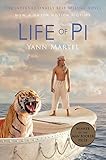 They were good-natured about it when I fixed my several-sheets-to-the-wind lazy eye upon them and interrogated them about their lives. Yes, they were Tech People. They worked at Glass Door, the online aggregator of salary information. Who were the chroniclers of their ilk, I asked, trying not to sound like a loon and sounding like one. There was TechCrunch, they said, or Gizmodo. “What about novels?” I asked, and they drew a blank. I asked if they liked novels, and they did. One of them told me his favorite novel was The Life of Pi.
They were good-natured about it when I fixed my several-sheets-to-the-wind lazy eye upon them and interrogated them about their lives. Yes, they were Tech People. They worked at Glass Door, the online aggregator of salary information. Who were the chroniclers of their ilk, I asked, trying not to sound like a loon and sounding like one. There was TechCrunch, they said, or Gizmodo. “What about novels?” I asked, and they drew a blank. I asked if they liked novels, and they did. One of them told me his favorite novel was The Life of Pi.
7. Disclaimers
I just got an iPhone for the first time and I think it actually makes my life better. I use an app to visualize my finances. I am bitter about the Tech People because they live in the trendy neighborhoods and make them too expensive for me, even though I am grotesquely sanguine about the prospect of making my neighborhood too expensive for someone else. I sometimes wish that popular, unmissable restaurants that don’t take reservations will burn down in a searing fire, after I get a chance to eat at them. I find myself embodying a kind of bumbling, solutionist fascism at work, wondering why we can’t just streamline all our systems, but not knowing exactly what the new tools are or how to use them. I hate that a Jack Spade is going to move into the former space of beloved, priced-out Adobe Books, but I also want its owner to have not hired so many feckless youths, and not persisted in using a notebook to record purchases when the dapper wolf was so patently at the door.
In every place except my chaotic home, I feel entitled to efficiency. In fact, my quest to find the great tech novel — something sprawling and social and occurring inside the Teach-Up and outside the restaurant and around the home of the displaced shopowner and the H1B-visa programmer — is in itself a kind of solutionism. Novels are captured social data. You want a snapshot of nineteenth-century French provincial bourgeois life? There’s an app for that: it’s called Flaubert. And that’s before we consider the novel as an aggregator of human data of the biggest, most nebulous kind. You want a map of the human heart? Whose heart? What century? There’s an app for that too.
I’ve been to school and I know that if a novel says something is one way, it does not mean it is that way. The cemeteries are full, undoubtedly, of French apothecaries who died cursing Flaubert. Novels are often places for satisfying vendettas, mythologizing, and righting the wrongs of reality. But so are blogs. So, probably, is TechCrunch.
People will point out, quite sensibly, that “Tech” cannot fit in one novel. There are people who think of the technology, people who make it, people who sell it, people who finance it, people who sue the people who made it for patent infringement, people who hack it and make it better or different, people who use it the normal way, people who live in the city where the restaurants open to feed the people who make the technology. For my purposes, here in San Francisco, we are all Tech People now.
(Although, of course, tech cannot be said to live in one place; it is not exclusively the province of San Francisco, or even California. Aaron Swartz, the young man who developed the RSS feed and liberated academic journals and recently committed suicide, is an Ur-Tech figure, and lived in San Francisco only briefly. Estonia has some of the best technology infrastructure in the world. But in a great tech novel, I think California would come up.)
8. Bibliography II
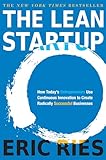 I took to TechCrunch and Quora in search of this great tech novel. I asked the Tech People I came across whether there were books about what they did and where they lived. I looked on Amazon. There is an overwhelming number of books about Silicon Valley, overwhelmingly nonfiction. They have titles like The Silicon Boys: And Their Valley of Dreams; The PayPal Wars; and so forth. Many of them are about the 1990s tech boom, which does not feel directly relevant to the hotness of a restaurant called Flour + Water — which is listed, incidentally, with GoodReads in the portfolio of a seed venture fund — but is certainly not irrelevant in the scheme of things. There are also instructional texts: one of the startup men I spoke with told me that The Lean Startup is a current hot title among entrepreneurs.
I took to TechCrunch and Quora in search of this great tech novel. I asked the Tech People I came across whether there were books about what they did and where they lived. I looked on Amazon. There is an overwhelming number of books about Silicon Valley, overwhelmingly nonfiction. They have titles like The Silicon Boys: And Their Valley of Dreams; The PayPal Wars; and so forth. Many of them are about the 1990s tech boom, which does not feel directly relevant to the hotness of a restaurant called Flour + Water — which is listed, incidentally, with GoodReads in the portfolio of a seed venture fund — but is certainly not irrelevant in the scheme of things. There are also instructional texts: one of the startup men I spoke with told me that The Lean Startup is a current hot title among entrepreneurs.
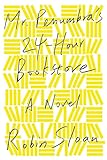
 There do not, however, seem to be many novels. Finally, through a Quora search and the recommendations of two Book People who are also kind of Tech People, in funny ways, I read three: Cory Doctorow’s Little Brother, a young adult novel; Robin Sloan’s Mr. Penumbra’s 24-Hour Bookstore, a young adult novel masquerading as an adult novel; and Andy Kessler’s Grumby, a young adult novel where the young adult is 35. Taken together, these novels sort of approached what I was looking for: Grumby (2010) — a light-hearted tale of ingenuity, entrepreneurship, and Furbies — is the most explicitly about the business end of software programming and the high adrenaline, strange ideas, and crazy money of Silicon Valley. Little Brother, written in 2007, is also about programming, but weighted heavily to human and civil rights to privacy in an age of big data. Mr. Penumbra, the newest novel, is a very cheerful bibliothriller, if that is a word, that imagines a world where the printing press lies down with the e-reader; the Google woman with the book-selling man (as long as he can program too).
There do not, however, seem to be many novels. Finally, through a Quora search and the recommendations of two Book People who are also kind of Tech People, in funny ways, I read three: Cory Doctorow’s Little Brother, a young adult novel; Robin Sloan’s Mr. Penumbra’s 24-Hour Bookstore, a young adult novel masquerading as an adult novel; and Andy Kessler’s Grumby, a young adult novel where the young adult is 35. Taken together, these novels sort of approached what I was looking for: Grumby (2010) — a light-hearted tale of ingenuity, entrepreneurship, and Furbies — is the most explicitly about the business end of software programming and the high adrenaline, strange ideas, and crazy money of Silicon Valley. Little Brother, written in 2007, is also about programming, but weighted heavily to human and civil rights to privacy in an age of big data. Mr. Penumbra, the newest novel, is a very cheerful bibliothriller, if that is a word, that imagines a world where the printing press lies down with the e-reader; the Google woman with the book-selling man (as long as he can program too).
Mr. Penumbra and Little Brother, although they take place in a present-that-is-not-quite-the-present, get geographically closer than Grumby to the heart of what I am looking for: they take place in San Francisco, and they are explicit about how changes in industry and technology shape society. If I squint at all these novels from the right angle, I can see evidence of the outsize effects of these changes in the industrial epicenter, i.e., the Bay Area. Sloan’s Googlers correspond to the overachieving Tech People I hear and wonder about, and both he and Doctorow root their novels in place to an extent that really drove home what a small town this is and how fast it is changing.
That said, the fact that Doctorow’s novel satisfied some of my parameters seems almost accidental: true Tech People — hackers and gamers and people who can build computers from thin air — are not constrained by any 49-square-mile plot of land or housing market. In the case of Little Brother, which sometimes reads like a San Francisco guidebook (one with some rapidly outdating cultural references), the city is less important to the narrative for its tech history than for its tradition of social protest.
These are three perfectly reasonable novels, all of which I enjoyed. Between them, they come up with a lot of good, strong, important themes: Kessler concludes that “technology, for all its benefits, [is] no substitute for people’s own judgments.” Sloan arrives at something similar, with individual smarts, friendship, and the printing press beating an army of Google code-breakers. Doctorow, injecting philosophy at every possible juncture, cautions us against selling our rights, our control over our own data, for the illusion of safety or efficiency. All of these are important, and all of them are communicated in competent writing.
In spite of their themes, however, these novels are strongly plot-driven; they don’t explore inner lives or relationships in any profound way. They have some good data, in terms of telling us what buildings in San Francisco look like, or the ways programmers think about problems and solutions. But really great novels need the human factor to be relevant, both to present-day readers who don’t share the author’s world, and to the readers of the future. People dismiss Tom Wolfe for not always knowing what he is talking about vis-à-vis college sex (or Miami), but Tom Wolfe knows how to transmit capitalist anxieties and weirdness from the top to the bottom.
It is worth noting, too, that the three novels are remarkably similar in voice. They are first-person accounts narrated by smart, affable males, a little goofy, but fundamentally loyal, moral beings, proud nerds all. If these guys weren’t too busy putting themselves in real or financial harm through their devotion to solving problems and meeting challenges, they would be great boyfriends. If it’s not Rule One of the MFA, it should be: Great boyfriends do not make great literature.
These are not meant to be social novels, and I don’t think any of the novelists were setting out to write Pulitzer prize winners, so I feel like a jerk for picking on them (especially Doctorow, who was writing for young adults). These novels had the misfortune of being my representative texts from an evidently rather small body of work about a particular milieu. But I was looking for a work of art for the ages, so I am compelled to report that these are not it. In the future, if the present is any basis from which to judge; pretty-good-not-spectacular novels are for the academics or the antiquarians (unless Google, or the Internet Archive, are planning to change all that).
Novels do not have to be worldbeaters to be worth writing and reading. But one can still hope, and wait, for that big work of literature.
9. Theories
A novel of this kind has been written, I just don’t know about it because it hasn’t been published or I didn’t look hard enough.
I am eager to read anything, including short fiction, that explores technology and society in industrial centers in a meaningful way. Please avail yourself of the comments section.
We are not at the proper remove from time for a novel of this kind to be written (or appreciated).
The literary theorists have even started mining big data. A recent New York Times article described the tools we have to treat books as huge deposits of data; novels can be scanned and parsed by machines instead of people. The machines are confirming what most novelists know already: enduring novelists are not always appreciated in their time, nor do they reflect the current trends. This has a couple of alternate implications. One: I am or will be too constrained by my temporal reality to know the great tech novel when I see it. Two: it will not come through traditional publishing channels, because publishers will suffer from the same constraints.
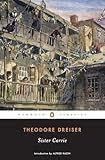
 More obviously, great social literature (or social protest literature) of the kind I’m looking for — a Germinal, a Sister Carrie, a Bonfire of the Vanities — takes time and perspective to write, so it stands to reason that the novel I want won’t emerge fully-formed from the mind of the creator the minute her apartment becomes too expensive.
More obviously, great social literature (or social protest literature) of the kind I’m looking for — a Germinal, a Sister Carrie, a Bonfire of the Vanities — takes time and perspective to write, so it stands to reason that the novel I want won’t emerge fully-formed from the mind of the creator the minute her apartment becomes too expensive.
Furthermore, I suspect that the immediate present — particularly of a place that considers itself at the forefront of something — lends itself more to satire and near-futurecasting than measured reflection of the moment. Little Brother describes Homeland Security on steroids; Robin Sloan chortles over a Google program powered by hubris. New developments seem so ludicrous we can’t yet describe them without getting a little hysterical. Aldous Huxley and Evelyn Waugh did a lot of this kind of writing, specifically, Vile Bodies or Antic Hay — novels that are good data about their times and place, but are too facetious to feel like serious novels. I don’t know if I’m comfortable calling Robin Sloan the Huxley of the future, but I could buy Mr. Penumbra as fun footnote in a great career.
Another word about time, though: it’s been ten years since the last tech boom. That’s plenty of time to produce something important.
There is something about tech and literature that makes them inimical to one another.
Let no woman say that Tech People — and here I mean the real architects of technological progress–can’t express themselves. Reading Larissa MacFarquhar’s epistolary article about Aaron Swartz in The New Yorker, I was struck, and moved, by how open Swartz and his friends were in their public and private writing. Swartz wrote raw, intensely personal things on his blog; Reddit is full of people expressing themselves in ways that are often shocking. But a novel requires something a little different.
It is my understanding that most writers feel some sense of being outside of things looking in. A good social novel requires a particular balance of alienation and access to be successful. (Tom Wolfe had to get invited to all those dinner parties; the tech novelist has to get invited to the Teach-Up.) Tech, the way it happens in San Francisco at least, seems to present some real deterrents to the access part of the equation. Tech companies, even when they are in the city proper, seem like compounds evoking non-disclosure agreements and badges and loyalty. The buses that ferry the workers from their San Francisco neighborhoods to their Peninsula offices are unmarked. I think these are insular, fortified environments in which it would be hard to achieve the balance of outside and inside status. And when you work twelve hours a day, how would you find the time?
Then there are the career novelists and the people who read them. Allison K. Gibson described for The Millions the uneasy way that fiction-writers engage with technological realities in their work. Jonathan Franzen, whom I consider to be the star novelist most capable of writing an old-fashioned social novel, is famously technology averse, and writes on a computer stripped down to a fancy typewriter. And really, how can you write something huge when you are Instagramming? But how can you be in the culture when you aren’t? Technology is fast; novels are slow. We’re still talking about Jennifer Egan’s PowerPoint chapter, when offices don’t even want to use PowerPoint anymore.
The social novel — or the novel generally — is getting phased out of culture.
Perish the thought. Alexander Nazaryan asked whither the novel and made a depressing but brilliant analogy: “A big social novel is like a great old train station; a nice thought, but impractical in this day and age. Who will go there, anyway? A bus shelter will do.” I hope that’s not the case, but if it is, all I can do is thank the creator for allowing me to live during even the scraggly, flea-bitten tail-end of the age of the social novel.
Please prove me wrong on all accounts. Show me the great things I’ve missed. And if you’re writing fiction about today, taking notes on your iPhone, stealing time for art on the Facebook bus, keep at it. The people of today are waiting. The people of tomorrow are waiting.
Image via calmenda/Flickr








